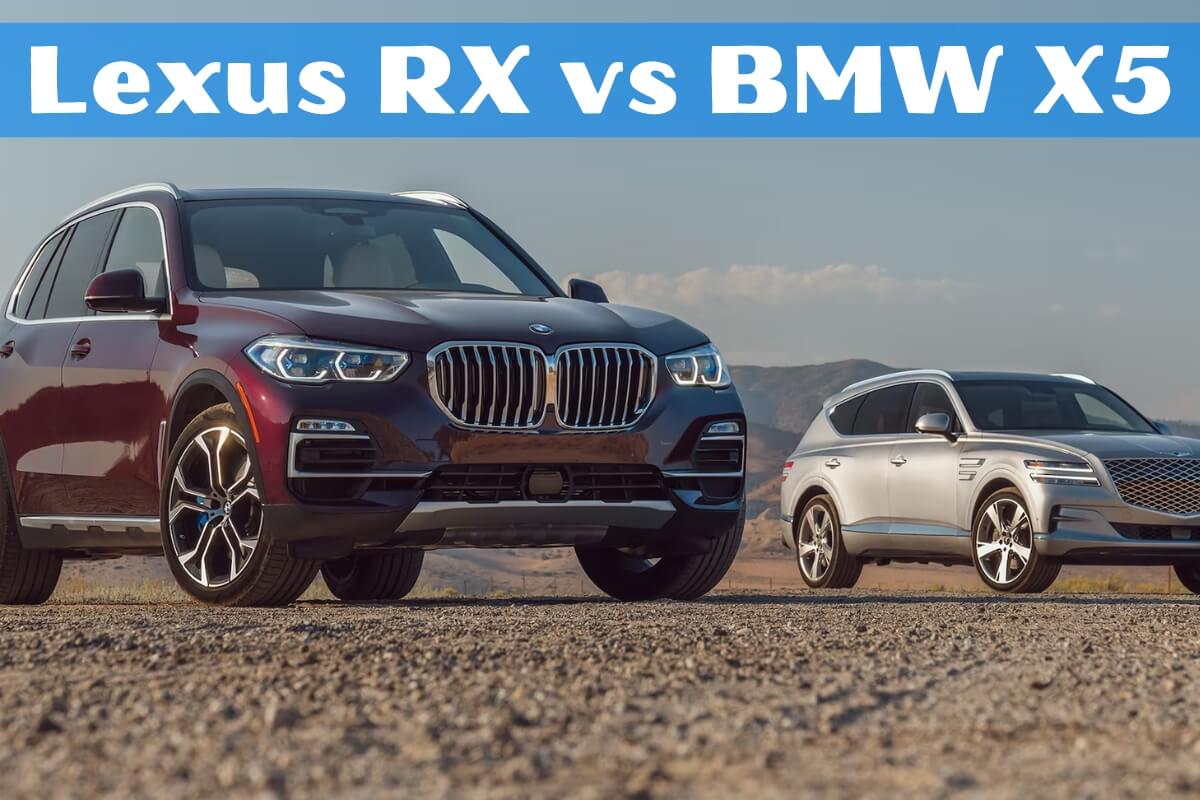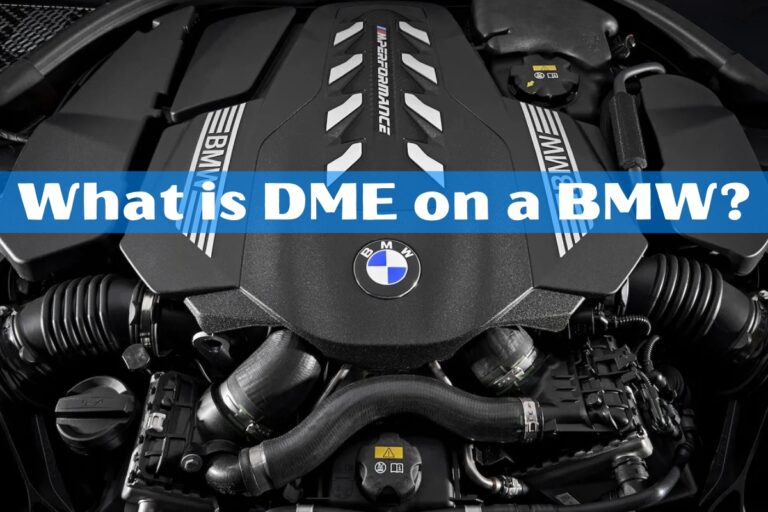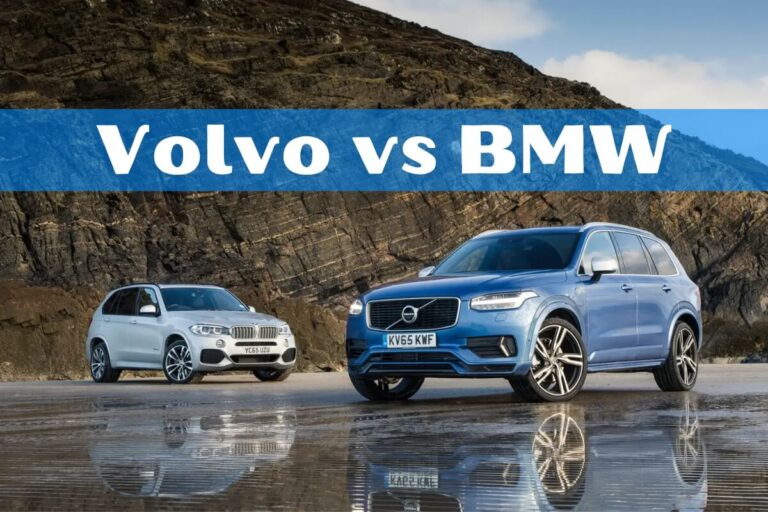Lexus RX vs BMW X5: Ultimate Luxury SUV Comparison

Looking for a midsize luxury SUV that combines comfort, performance, and high-end features? The Lexus RX and BMW X5 are two of the most popular choices in this competitive segment. But which one should you go for?
Choosing between the Lexus RX and BMW X5? This comparison breaks down the key differences between these luxury SUVs. From exterior style and interior room to performance, cost, and features, we’ll explore what sets them apart. By the end, you’ll know which one fits your lifestyle and needs.
Exterior Design and Dimensions
The Lexus RX sports a bold, angular exterior design that immediately catches the eye. Its signature spindle grille, sharp body lines, and sleek LED lighting give it a modern and upscale appearance. The BMW X5, on the other hand, has a more muscular and aggressive stance. Its trademark kidney grille, sculpted hood, and athletic silhouette exude a quintessential BMW look.
In terms of dimensions, the X5 is slightly larger overall. It measures 194.2 inches long, 78.9 inches wide, and 69.5 inches tall, compared to the RX’s 192.5 inches long, 75.6 inches wide, and 67.3 inches tall. This gives the BMW a slight edge in interior space, as we’ll see shortly.
Which exterior design you prefer is subjective, but both the RX and X5 have undeniable curb appeal that turns heads on the road.
Interior Space and Comfort
When it comes to interior space, the BMW X5 takes the lead. It offers more front headroom (40.8 inches vs 39.5 inches) and shoulder room (60.0 inches vs 58.1 inches) than the Lexus RX. Rear legroom is identical at 37.4 inches, but the X5 again has an advantage in rear headroom and shoulder room.
The X5 is also available with an optional third row, increasing its seating capacity to seven. The Lexus RX is strictly a two-row SUV with seating for five.
However, the RX fights back with a slight edge in front legroom at 41.1 inches compared to 39.8 inches in the X5.
Both SUVs feature high-quality interior materials and design befitting their luxury status. The RX’s interior has a more modern and minimalist vibe, while the X5’s cabin exudes a classic yet sporty ambiance. Deciding which interior you prefer comes down to personal taste.
When it comes to cargo space, the BMW X5 is the clear winner. With all seats in place, it offers 33.9 cubic feet, and a maximum of 72.3 cubic feet with the rear seats folded down. The Lexus RX has 16.0 cubic feet behind the second row and maxes out at 46.2 cubic feet.
Performance and Capability
The Lexus RX is available with two engine options: a 275-hp 2.4L turbocharged four-cylinder in the RX 350, and a 366-hp hybrid setup in the RX 500h F Sport Performance. Both come standard with an eight-speed automatic transmission and either front-wheel drive (FWD) or all-wheel drive (AWD).
In comparison, the BMW X5 offers a wider range of powertrain choices. The base sDrive40i has a 335-hp 3.0L turbocharged six-cylinder, while the xDrive50e plug-in hybrid makes 483 hp. The high-performance M50i gets a 523-hp 4.4L twin-turbo V8, and the X5 M Competition tops out with a monstrous 617-hp version of that engine.
All X5 models come standard with an eight-speed automatic and either rear-wheel drive (RWD) or AWD depending on the trim.
In terms of acceleration, the BMW X5 has the clear edge. The base sDrive40i can hit 60 mph in just 5.3 seconds, while even the RX 500h takes 5.9 seconds. The X5 M Competition is downright ferocious, sprinting to 60 mph in only 3.7 seconds.
However, the Lexus RX counters with better fuel efficiency ratings. The RX 350 gets an EPA-estimated 22 mpg city and 29 mpg highway with FWD, compared to 23 mpg city and 27 mpg highway for the X5 sDrive40i.
When properly equipped, the BMW X5 can tow up to 7,200 pounds, outmuscling the RX’s maximum tow rating of 3,500 pounds. The X5 also has a more advanced AWD system with rear-biased torque distribution for better handling dynamics.
So while the Lexus RX has respectable performance, the BMW X5 is the clear choice if you prioritize outright power, acceleration, and capability.
Pricing and Trim Levels
The Lexus RX starts at a lower base price of $49,950 for the RX 350 FWD. Adding AWD bumps that up to $51,650. The more powerful RX 500h F Sport Performance with AWD begins at $61,700.
In contrast, the base BMW X5 sDrive40i has a starting MSRP of $66,875, with the xDrive40i AWD model starting at $69,075. Prices climb rapidly from there, with the X5 M Competition ringing in at a lofty $118,300.
Both the RX and X5 are offered in a variety of trim levels with different features and option packages. Some key Lexus RX trims include:
- RX Premium (From $52,410)
- RX F Sport Handling AWD ($56,450)
- RX Luxury ($52,950)
Notable BMW X5 trims consist of:
- xDrive50e plug-in hybrid ($69,675)
- X5 M50i ($95,295)
- X5 M Competition ($118,300)
When it comes to pricing and value, the Lexus RX has an advantage at lower trim levels. But the BMW X5’s larger engine options and higher-performance trims do command a significant premium.
Standard and Available Features
Even the base Lexus RX 350 comes well-equipped with dual-zone automatic climate control, a power liftgate, LED headlights, and the Lexus Safety System+ 2.0 suite of advanced driver aids. Higher trims add luxuries like a panoramic sunroof, heated and ventilated seats, navigation, and a premium audio system.
The BMW X5 counters with its own long list of standard niceties like a 12.3-inch digital instrument cluster, tri-zone climate control, ambient lighting, and the Active Driving Assistant suite of safety tech. Optional highlights include remote start, a head-up display, massaging front seats, and a thumping Bowers & Wilkins surround sound system.
Both the RX and X5 come standard with user-friendly infotainment systems featuring touchscreens, wireless Apple CarPlay and Android Auto, voice controls, and plenty of connectivity options.
Overall, you get a lot of features for your money with either SUV. But the BMW does tend to offer more advanced technologies and upscale amenities, albeit at a higher price point.
Reliability and Ownership Costs
According to J.D. Power’s predicted reliability ratings, the Lexus RX has a score of 87 out of 100 compared to 80 out of 100 for the BMW X5. This means the Lexus should be slightly more dependable in the long run.
Scheduled maintenance costs also tend to be higher for the BMW. Owners report spending an average of $1,000 to $1,700 per year on upkeep for their X5, versus around $550 for the Lexus RX.
The Lexus RX holds its value well but still lags behind the BMW X5’s exceptional residual values. After five years, RX models typically retain around 49% of their original MSRP, while the X5 holds on to about 56%.
Insurance premiums will be higher for the pricier and more powerful BMW X5 across most coverage levels. Fuel costs, however, should be slightly lower for the more efficient Lexus RX.
So from a long-term cost of ownership perspective, the Lexus RX is the smarter choice for shoppers on a budget. Its lower purchase price, better fuel economy, and reduced maintenance demands make it more affordable to own over several years.
However, the BMW X5’s stronger residual values help offset some of those higher costs. And if you plan on owning your luxury SUV for just a few years, the X5’s premium pricing may be easier to justify.
The Verdict
After comparing the Lexus RX and BMW X5 across all the key areas, it’s clear that both are superb luxury SUVs with their own unique strengths.
The Lexus RX shines when it comes to value, fuel efficiency, predicted reliability, and lower running costs. It’s the more practical choice, especially if you don’t need the extra power or cargo capacity of the X5.
On the flip side, the BMW X5 has the overall edge in performance, cabin space, towing capability, and outright luxury. Its higher price is justifiable if you want the most powerful engine options and an interior that feels a class above.
For most shoppers, the decision will likely come down to priorities. Do you value sportiness and prestige above all else? The BMW X5 could be worth the higher costs. But if you’re looking to maximize value while still enjoying a premium SUV experience, the Lexus RX makes an incredibly compelling case.
No matter which of these two class leaders you choose, you’re getting an exceptionally well-rounded luxury vehicle with undeniable appeal. Test drive both to see which one truly speaks to your sensibilities before making your final decision.





